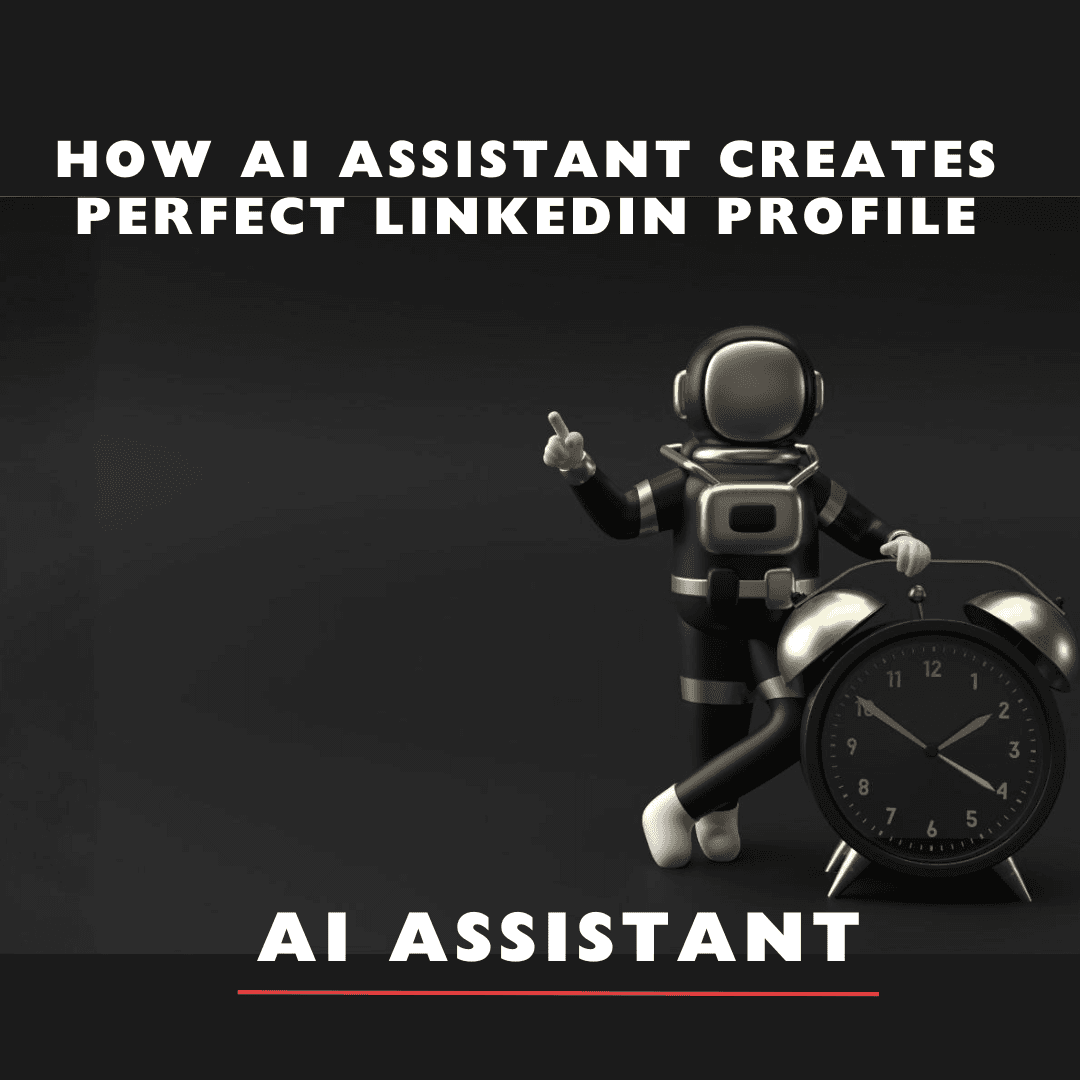Back
Mar 3, 2024
How Do AI Answer Generators Work?

Emily Brown | Media Manager at AI Assistant
Artificial intelligence (AI) answer generators are revolutionizing the way we retrieve information by utilizing advanced algorithms and machine learning techniques. These powerful tools are designed to analyze vast amounts of data and provide accurate answers to user queries in a matter of seconds.
The process begins with the AI answer generator collecting and indexing information from various sources such as websites, databases, and even academic journals. This extensive data collection allows the AI answer generator to have a wide range of knowledge at its disposal.
Once the data is collected, the AI answer generator uses natural language processing (NLP) algorithms to understand and interpret user queries. NLP enables the AI answer generator to comprehend the context and intent behind each question, allowing it to deliver more accurate and relevant answers.
Next, the AI answer generator employs machine learning algorithms to analyze the collected data and find patterns, correlations, and similarities. This process enables it to identify the most reliable and trustworthy sources of information and determine the credibility of the answers it provides.
Finally, the AI answer generator generates a response based on the analyzed data and presents it to the user. The response can take various forms, such as a short snippet, a concise summary, or even a detailed explanation depending on the complexity of the query.
Overall, AI answer generators are a combination of powerful data analysis, natural language processing, and machine learning capabilities. They provide quick and accurate answers by leveraging vast amounts of information and continuously learning and improving their performance.
Benefits of using AI answer generators
The use of AI answer generators offers numerous benefits to both individuals and businesses. Here are some of the key advantages:
Time-saving: AI answer generators eliminate the need for extensive manual research, saving users valuable time. Instead of spending hours sifting through search results or reading lengthy articles, users can get immediate answers to their queries.
Accuracy: AI answer generators are designed to analyze data from reliable and authoritative sources, ensuring the accuracy of the answers provided. By leveraging machine learning and data analysis techniques, these tools can filter out irrelevant or incorrect information, delivering only the most reliable answers.
Efficiency: With AI answer generators, users can quickly find the information they need without getting overwhelmed by excessive search results. The ability to get accurate answers in a timely manner enhances productivity and efficiency.
Versatility: AI answer generators can handle a wide range of queries across different industries and domains. Whether you need to define a technical term, gather statistical data, or seek explanations for complex concepts, these tools can provide the information you require.
Consistency: AI answer generators ensure consistency in the information provided. Unlike human operators, who may have varying levels of knowledge or biases, AI answer generators deliver consistent and unbiased responses.
Cost-effective: For businesses, AI answer generators can significantly reduce costs associated with manual research and information retrieval. By automating the process, companies can allocate resources more efficiently and focus on other critical tasks.
In summary, AI answer generators offer a range of benefits, including time-saving, accuracy, efficiency, versatility, consistency, and cost-effectiveness. These advantages make them invaluable tools for individuals and businesses alike.
AI answer generators in different industries
The application of AI answer generators extends across various industries, revolutionizing the way professionals access information and make informed decisions. Here are a few examples of how AI answer generators are being used in different sectors:
Healthcare: AI answer generators are transforming the healthcare industry by providing quick and accurate information to healthcare professionals, researchers, and patients. They can assist in diagnosing medical conditions, providing treatment recommendations, and offering insights into the latest medical research.
Legal: In the legal sector, AI answer generators are streamlining legal research and enabling lawyers to find relevant case law, statutes, and legal opinions faster. These tools can also assist in contract analysis, due diligence, and legal writing.
Finance: AI answer generators are being used in the finance industry to aid with data analysis, risk assessment, and investment decision-making. They can provide real-time financial information, analyze market trends, and offer insights into complex financial concepts.
Education: AI answer generators are transforming the way students learn and access information. These tools can provide instant answers to study-related questions, help with research projects, and offer explanations for difficult concepts.
Customer support: Many companies are using AI answer generators to automate customer support and provide quick responses to frequently asked questions. These tools can reduce customer wait times, improve customer satisfaction, and free up human agents to handle more complex inquiries.
Journalism: AI answer generators are being used to assist journalists in gathering information, fact-checking, and generating news articles. They can quickly extract relevant data from various sources, saving journalists valuable time and enhancing the accuracy of their reporting.
These are just a few examples of how AI answer generators are revolutionizing different industries. As these tools continue to evolve, their applications are likely to expand further, transforming the way professionals access information in their respective fields.
How to choose the right AI answer generator for your needs
With the growing number of AI answer generators available, choosing the right one for your specific needs can be a daunting task. Here are some key factors to consider when selecting an AI answer generator:
Accuracy: Look for an AI answer generator that has a proven track record of delivering accurate answers. Consider user reviews and case studies to gauge the tool's performance in terms of accuracy.
Data sources: Evaluate the sources of data that the AI answer generator utilizes. Ensure that it gathers information from reliable and authoritative sources to ensure the accuracy and trustworthiness of the answers it provides.
Customizability: Consider whether the AI answer generator allows customization to suit your specific requirements. Some tools offer the flexibility to tailor the responses based on industry-specific terminology or internal knowledge bases.
Ease of integration: If you plan to integrate the AI answer generator into an existing system or platform, ensure that it offers seamless integration capabilities. Compatibility with your current infrastructure is essential for a smooth implementation.
User experience: Evaluate the user interface and experience of the AI answer generator. A user-friendly interface with intuitive navigation can enhance productivity and make the tool easier to adopt.
Support and updates: Look for a provider that offers reliable support and regular updates. AI technologies are constantly evolving, and it's crucial to choose a tool that stays up-to-date with the latest advancements and addresses any potential issues promptly.
Cost-effectiveness: Consider the cost implications of using an AI answer generator. Evaluate the pricing structure and compare it with the benefits and value it offers. Look for transparent pricing models that align with your budget and expected usage.
By considering these factors, you can narrow down your options and choose an AI answer generator that aligns with your specific needs and requirements.

Best practices for using AI answer generators effectively
To make the most of AI answer generators, it's essential to follow some best practices. Here are a few tips to help you use these tools effectively:
Craft clear and specific queries: When using an AI answer generator, be as specific as possible in your queries. Clearly state what information you are seeking to get the most accurate and relevant answers.
Verify information from multiple sources: While AI answer generators strive to provide accurate information, it's always a good practice to verify the answers from multiple sources. Cross-referencing the information can help ensure its reliability.
Continuously learn and adapt: AI answer generators learn from user interactions and feedback. Provide feedback when necessary to help improve the tool's performance and accuracy. The more feedback the system receives, the better it becomes at delivering accurate answers.
Stay updated with new features: Keep an eye on updates and new features introduced by the AI answer generator provider. These updates may enhance the tool's capabilities, improve accuracy, or introduce new functionalities that can further streamline your information retrieval process.
Train and familiarize users: If you're implementing an AI answer generator in a business setting, invest time in training and familiarizing your team with the tool. Help them understand its capabilities, limitations, and best practices to ensure optimal usage.
Combine AI answer generators with human expertise: While AI answer generators offer numerous benefits, they are not meant to replace human expertise entirely. Encourage collaboration between AI tools and human experts to leverage the strengths of both and ensure the most accurate and comprehensive information retrieval.
By following these best practices, you can maximize the effectiveness of AI answer generators and harness their full potential.
Common challenges and limitations of AI answer generators
While AI answer generators offer significant advantages, they also come with certain challenges and limitations. It's important to be aware of these factors to manage expectations and make informed decisions. Here are some common challenges and limitations associated with AI answer generators:
Contextual understanding: AI answer generators can sometimes struggle with understanding the context of certain queries. They may provide irrelevant or incorrect answers if the query is ambiguous or lacks sufficient context.
Lack of human judgment: AI answer generators rely solely on data analysis and algorithms, lacking the human judgment and intuition that can be valuable in certain situations. They may not be able to provide nuanced or subjective answers that require human interpretation.
Data bias: AI answer generators learn from the data they are trained on, which can introduce biases. If the training data is biased or lacks diversity, the answers provided by the AI tool may also reflect those biases.
Limited domain knowledge: While AI answer generators can handle a wide range of queries, they may struggle with highly specialized or niche topics. They may not have access to specific domain knowledge or the ability to understand complex technical jargon.
Language limitations: AI answer generators may face challenges with languages that have complex grammar or lack sufficient training data. The accuracy and reliability of the answers may vary depending on the language being used.
Security and privacy concerns: AI answer generators often rely on collecting and analyzing large amounts of data, raising concerns about data security and privacy. It's crucial to ensure that the tool's data handling practices align with relevant regulations and industry standards.
Evolution and updates: AI technologies are continuously evolving, and new advancements may render existing AI answer generators obsolete. Staying updated with the latest developments and considering the longevity of the tool is important when making a long-term investment.
Understanding these challenges and limitations can help you set realistic expectations and mitigate potential issues when using AI answer generators.
The future of AI answer generators
The field of AI answer generators is rapidly evolving, and the future holds exciting possibilities. Here are some trends and developments that are likely to shape the future of these tools:
Improved natural language processing: Advancements in natural language processing will enhance the ability of AI answer generators to understand complex queries and provide more accurate and nuanced responses.
Multilingual capabilities: AI answer generators will become more proficient in handling diverse languages, enabling users from different regions to access information in their preferred language with greater accuracy.
Enhanced context understanding: AI answer generators will continue to improve their contextual understanding, allowing them to provide more precise answers even in ambiguous or complex situations.
Integration with voice assistants: The integration of AI answer generators with voice assistants like Siri, Alexa, and Google Assistant will enable users to access information through voice commands, making the process even more convenient and accessible.
Better handling of subjective queries: AI answer generators will develop the ability to handle subjective queries that require human judgment and interpretation. This will enable them to provide more nuanced and personalized responses.
Continuous learning and feedback loops: AI answer generators will become more adept at learning from user feedback and interactions, leading to continuous improvement in their performance and accuracy.
Domain-specific AI answer generators: As AI technologies advance, we can expect to see more specialized AI answer generators tailored to specific industries or domains. These tools will offer deeper domain knowledge and cater to the unique information needs of different sectors.
The future of AI answer generators is promising, with advancements in technology and ongoing research driving their capabilities to new heights. As these tools become more sophisticated, they will continue to revolutionize the way we access and retrieve information.

ARTIFICIAL INTELLIGENCE MARKET SIZE 2018-2030
As an increasing number of organizations and individual users begin to rely on AI answer generators, there is a growing need to understand their efficacy. According to recent research by Market Research Future, the artificial intelligence market is expected to reach $190.61 billion USD by 2025, growing at a CAGR of 33.2% from 2019 to 2025. This underscores the rapid growth and opportunities AI presents across various sectors, including enhancing the accuracy and speed of information processing. For more detailed insights into these trends and statistics, visit the Market Research Future study here.
Examples of successful AI answer generator implementations
Numerous organizations have successfully implemented AI answer generators to streamline their operations and enhance information retrieval. Here are a few notable examples:
OpenAI's GPT-3: OpenAI's GPT-3 (Generative Pre-trained Transformer 3) is a powerful language model that has been used to build AI answer generators capable of answering a wide range of queries. The model has been trained on a vast amount of data and can produce human-like responses.
IBM Watson's DeepQA: IBM Watson's DeepQA system gained recognition when it defeated human champions on the television quiz show Jeopardy! in 2011. DeepQA utilizes advanced natural language processing and machine learning techniques to understand and answer complex questions across various domains.
Google's Featured Snippets: Google's Featured Snippets are a form of AI answer generator that provides concise answers directly on the search results page. These snippets are generated based on the analysis of web pages and aim to provide quick and accurate responses to user queries.
Chatbots and virtual assistants: Many companies have implemented AI-powered chatbots and virtual assistants to answer customer queries and provide support. These tools utilize AI answer generators to deliver instant responses, improving customer satisfaction and reducing support costs.
These examples demonstrate the powerful capabilities of AI answer generators and their potential to transform various industries and user experiences.
Conclusion: Harnessing the power of AI answer generators
The AI answer generator is a game-changer in the world of information retrieval. By leveraging the power of artificial intelligence, these tools provide quick and accurate answers to user queries, saving time and effort.
With their ability to analyze vast amounts of data, AI answer generators offer unparalleled accuracy and efficiency. They are being utilized across industries, revolutionizing sectors such as healthcare, legal, finance, education, customer support, and journalism.
When choosing an AI answer generator, consider factors such as accuracy, data sources, customizability, ease of integration, user experience, and support. Following best practices such as crafting clear queries, verifying information, and continuously learning and adapting will maximize the effectiveness of these tools.
While AI answer generators have certain challenges and limitations, ongoing advancements in natural language processing, multilingual capabilities, and contextual understanding will shape their future. The integration with voice assistants, better handling of subjective queries, and domain-specific solutions are among the exciting

























